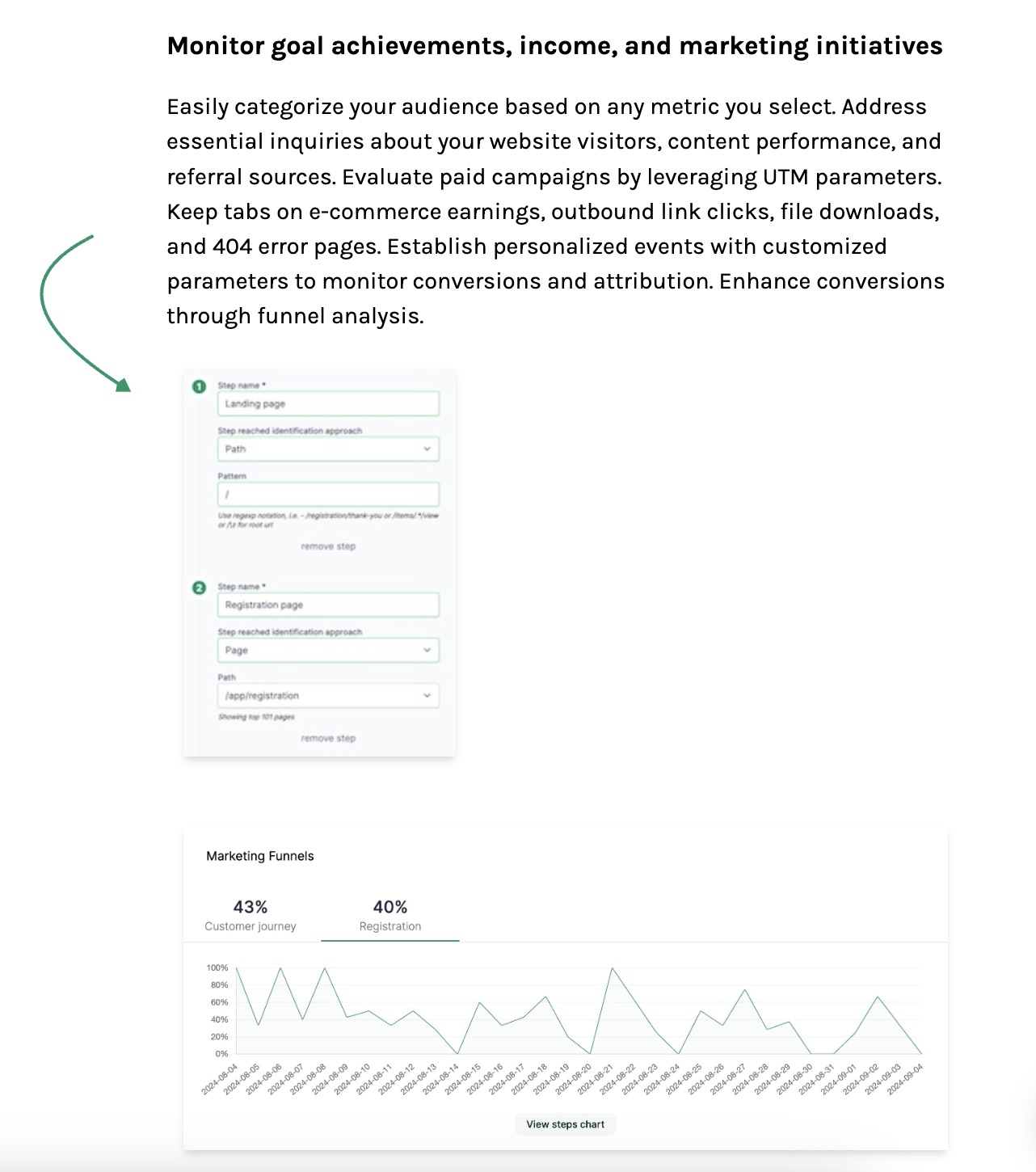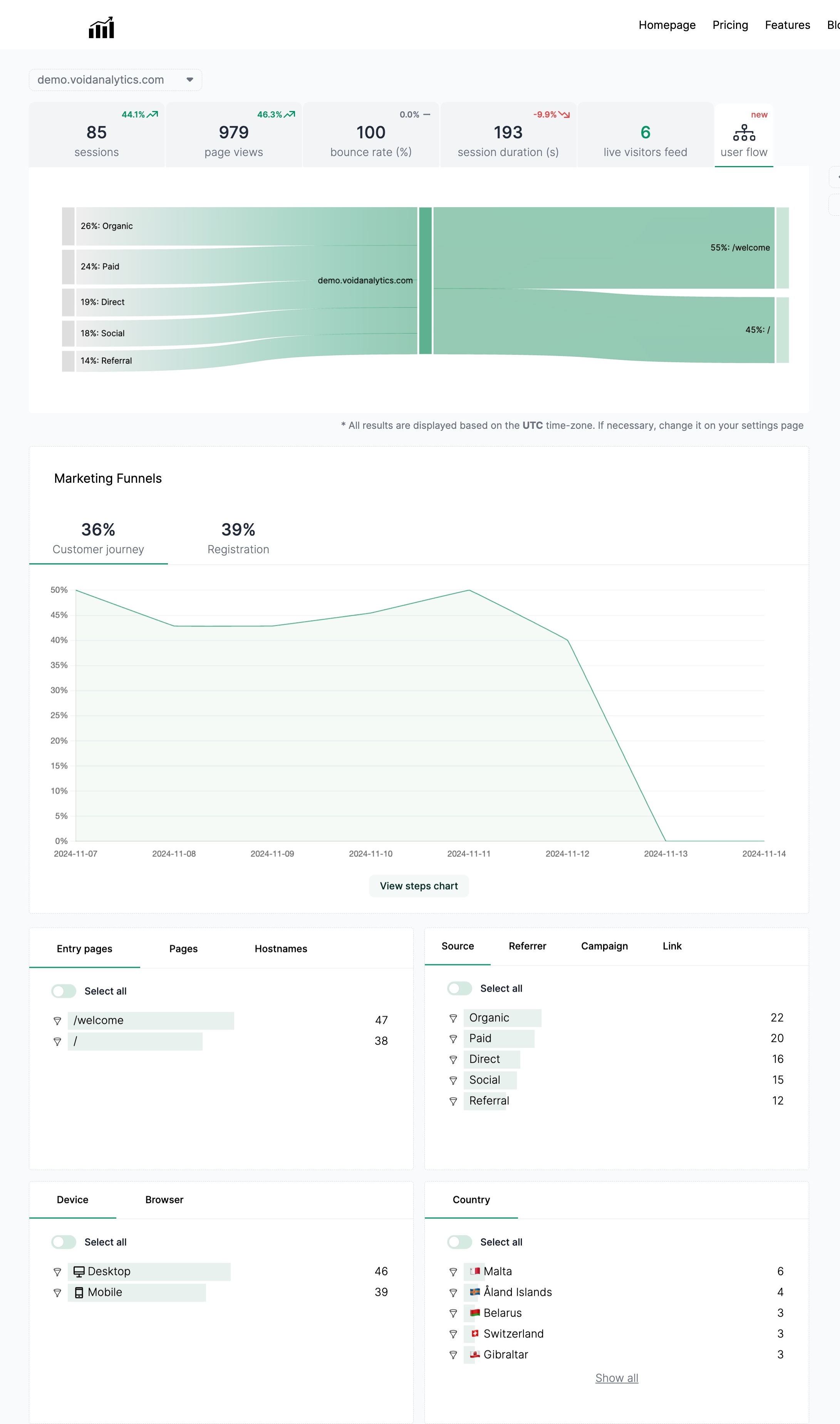How can businesses benefit from using analytics on their website?
Published on 2024-01-30
In today's digital age, data plays a pivotal role in shaping business strategies. For online businesses, leveraging website analytics has become indispensable. By harnessing the power of analytics, companies can gain valuable insights into user behavior, preferences, and overall website performance. In this blog post, we'll explore how businesses can benefit from using analytics on their website.
Understanding Customer Behavior
One of the primary advantages of website analytics is the ability to understand customer behavior. Analytics tools provide detailed information about how users navigate through a website, the pages they visit, and the time spent on each page. This information is crucial for businesses looking to optimize their website's layout, content, and user experience.
By analyzing user behavior, businesses can identify popular pages, pinpoint areas with high bounce rates, and understand the customer journey. Armed with this knowledge, companies can make informed decisions to enhance user engagement and satisfaction.
Improving Conversion Rates
Website analytics empowers businesses to track and analyze conversion rates. Whether the desired action is a product purchase, newsletter sign-up, or any other conversion goal, analytics tools provide insights into the factors influencing these outcomes. By identifying conversion bottlenecks and optimizing conversion funnels, businesses can enhance their overall conversion rates and, subsequently, their bottom line.
Personalizing User Experiences
Analytics data helps businesses create personalized user experiences. By segmenting users based on demographics, location, or behavior, companies can tailor content and offerings to specific audience segments. Personalization not only improves user satisfaction but also increases the likelihood of conversion, as users are more likely to engage with content that aligns with their interests and preferences.
Monitoring Marketing Campaigns
Businesses invest significant resources in digital marketing campaigns. Analytics provides a way to measure the effectiveness of these efforts. By tracking the performance of various marketing channels, businesses can allocate their budget more efficiently, focusing on strategies that deliver the best results. This data-driven approach enables companies to refine their marketing strategies and maximize their return on investment.
Introducing Void Analytics: A Powerful Alternative to Google Analytics
While Google Analytics has been a widely used analytics tool, some businesses are exploring alternatives to enhance data privacy and gain more control over their analytics data. One such alternative is Void Analytics.
Void Analytics offers a comprehensive analytics solution with a strong focus on data privacy and security. It provides detailed insights into user behavior, conversion rates, and marketing campaign performance, just like traditional analytics tools. However, Void Analytics distinguishes itself by putting data ownership back in the hands of businesses.
Key features of Void Analytics include:
Data Ownership: Unlike some third-party analytics tools, Void Analytics ensures that businesses have full ownership and control over their data.
Privacy Compliance: Void Analytics prioritizes user privacy and is designed to comply with the latest data protection regulations.
Advanced Segmentation: The platform offers advanced user segmentation capabilities, allowing businesses to personalize user experiences more effectively.
Real-time Reporting: Void Analytics provides real-time reporting, enabling businesses to make timely decisions based on the latest data.
In conclusion, integrating analytics into a business's website is essential for unlocking valuable insights, improving user experiences, and optimizing digital strategies. Whether using traditional tools like Google Analytics or exploring alternatives like Void Analytics, the key is to leverage data to drive informed decision-making and business success.

